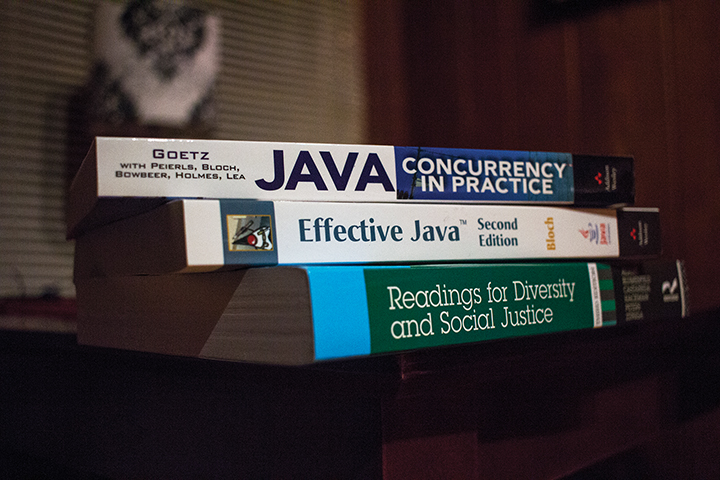Oh, to be young and to be in high school again. Remember those days when schools issued free textbooks and free education? Looking at my student billing statement and required textbook lists, I know those days are long gone, but they are not forgotten. As I start my final year here in College Park, I find myself staring again at the inexorable realities of pursuing higher education.
Each year seems to bring hidden costs of attendance. While in the past it was possible to predict certain fees and the total costs of student tuition, the advent and proliferation of online homework and assignment systems have begun to supplant these preconceived price points.
More students across the country pay massive sums for online access codes that only work for one semester and for one individual. As many have described it in the past, these websites, and the companies that run them, force students to pay to complete their assignments.
Overall, this effectively eliminates the recycling components that have long been integral to fair pricing in education. Before, savvy students could rent or manage the sale and resale of used textbooks, and could therefore be expected to recuperate some losses. However, this is no longer the case, as it is impossible to rent or buy secondhand versions of access codes. Further issues concerning the availability and universality of online assignment systems and their ability to accommodate disabled students also exist. Compliance with laws such as the Americans with Disabilities Act has been lacking for some online resources, and some disabled students end up paying for programs that do not support their needs.
While I cannot begrudge these business entities for profiting and coming up with complex coding and algorithms that can help expedite and enhance student learning, I believe that schools have a responsibility to develop and implement some of their online assignment systems. Considering how most universities are flush with programmers and massive tech departments, an increased emphasis on a university’s digital learning resources should result in lower costs both for students and universities. In a society dominated by free market supply and demand economics, increased competition in the digital learning marketplace should decrease online access costs for students. Universities developing digital learning methods would in turn have increased leverage over the digital companies they contract to provide online assignments.
Digital learning may prove to be the future of education, and in time, it may even be the ultimate way of finally stemming inflating student tuition costs in this country. However, first and foremost, we must work to develop additional venues through which digital learning may be accessed. For too long, student grades have been held ransom by private companies, and while the textbook era may be ending, it is time to address the era of online pay-to-play subscriptions in academia.
Max An is a senior physiology and neurobiology major. He can be reached at maxandbk@gmail.com.



